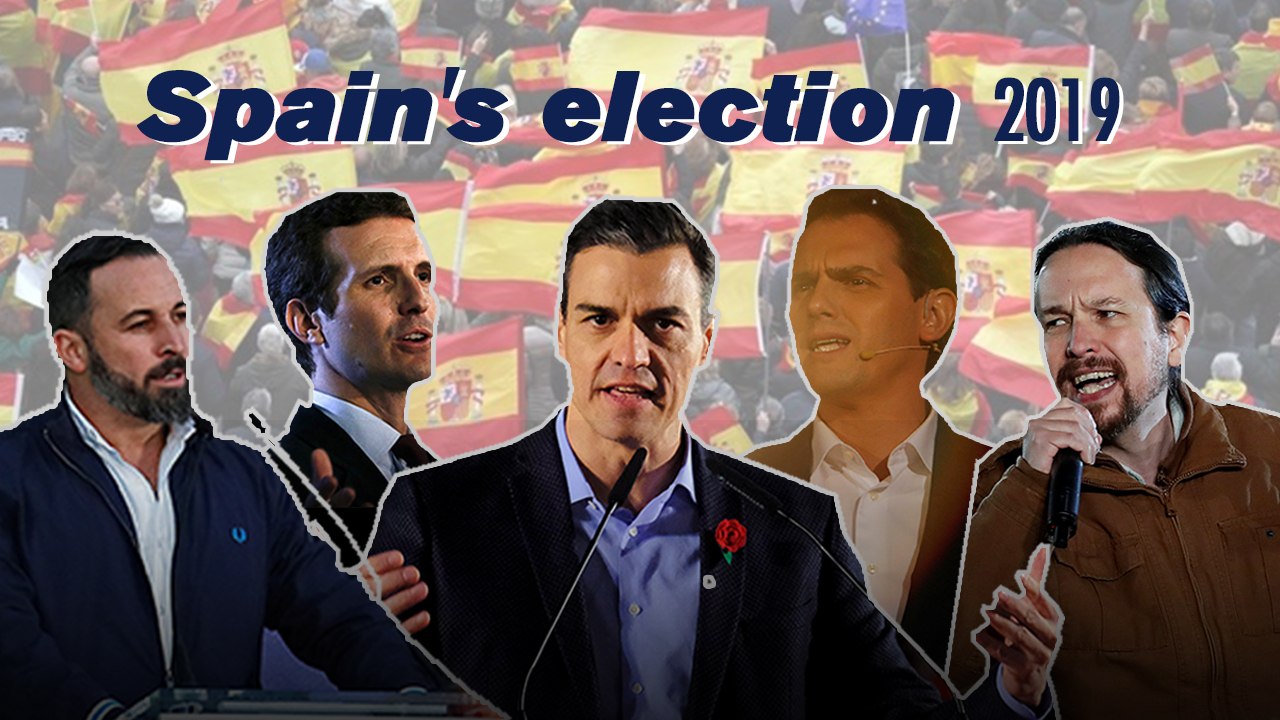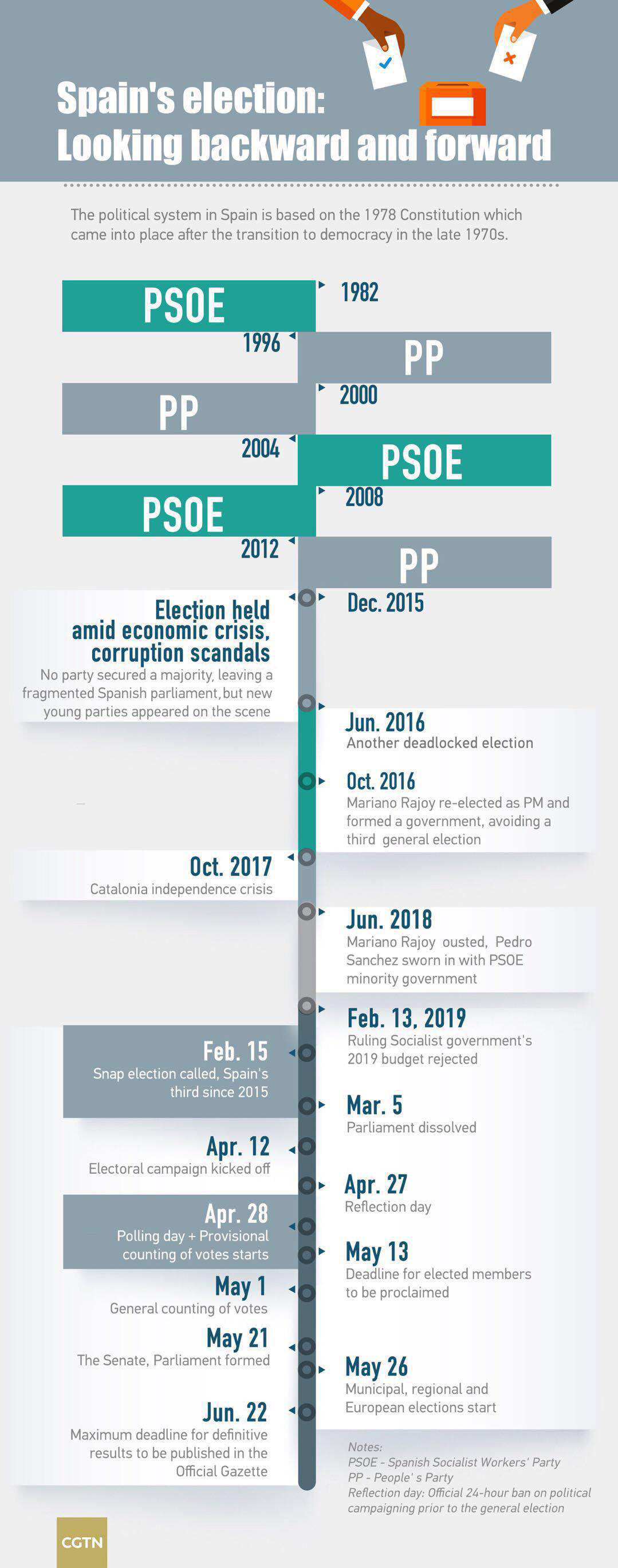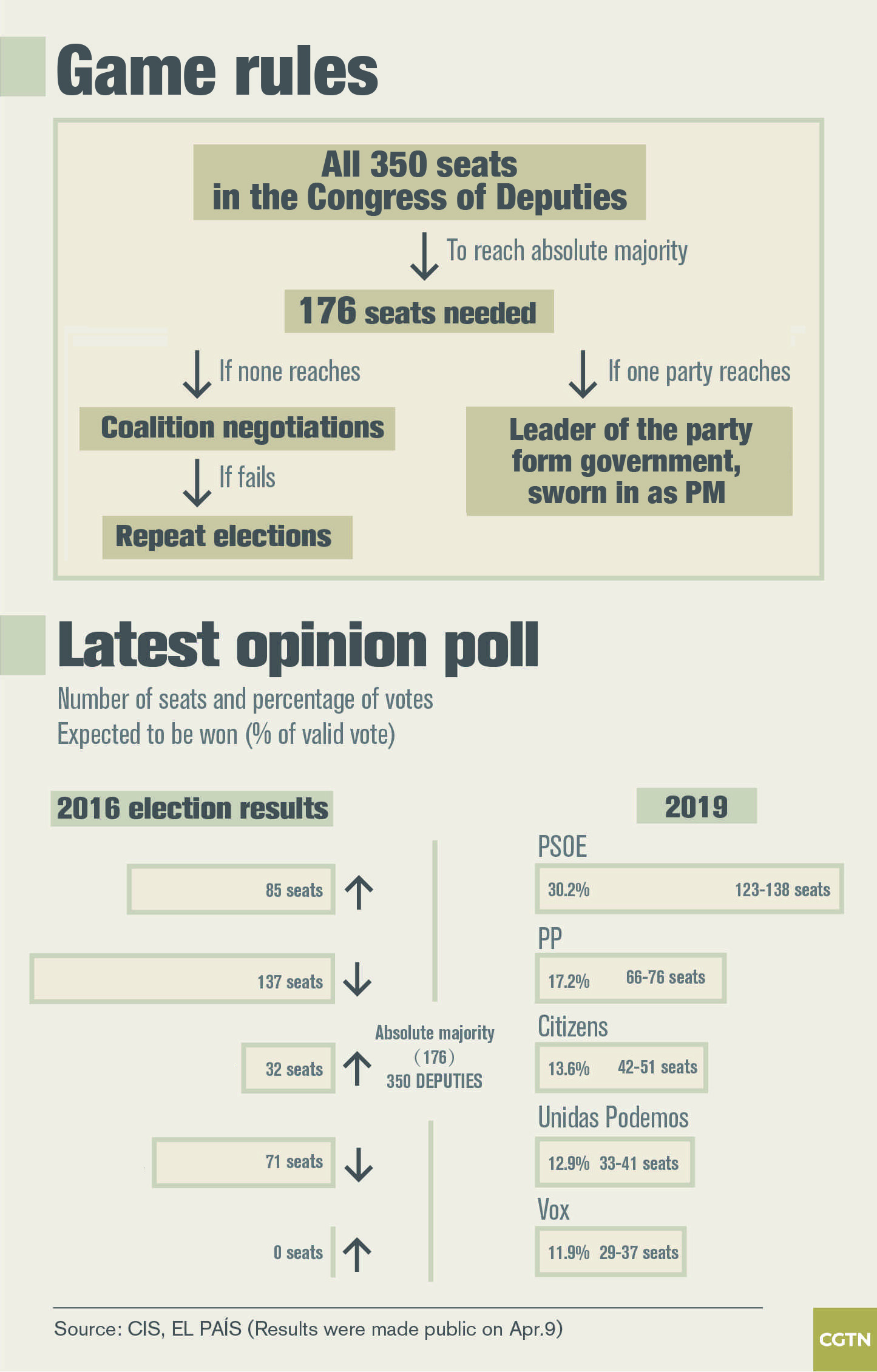
Europe
07:43, 28-Apr-2019
Spain snap election 2019: Will replay button be pressed again?
By Duan Fengyuan

As Spanish voters go to the polls for the third time in four years on Sunday, will the snap election result in a new government that can last longer?
General elections are held every four years in Spain, or earlier if the prime minister decides to call a snap election. The April 28 election belongs to the latter scenario, which could turn out to be the beginning of a replay of the political cycle following the 2015 election – a snap election, deadlock, and another election.
Contenders and rules
The elections held in December 2015 and June 2016 highlighted the difficulties of forming a government with the newly emerged four-party system: the Socialist Worker's Party (PSOE), the People's Party (PP), Citizens (Ciudadanos), and United We Can (Unidos Podemos).
However, the political landscape has changed even more with the emergence of the far-right party Vox since then, which could further complicate matters after April 28.
Let us take a glance at the five main Spanish political parties first:

Seats will probably be split among the five parties for the first time since the country's return to democracy 40 years ago.
Two parties, the left, and the right had dominated the national political landscape for a long time. Since 2015, some young parties have joined the game, altering the situation with more possibilities, as well as more instabilities.
Moreover, the situation has got more complicated with the Catalonia independence crisis hitting the country in October 2017, which was Spain's worst political crisis in decades.
Read more:

More than two weeks have passed since the election campaign kicked off. Did things clear up?
Replay button or compromise
According to recent estimates carried out by Spain's CIS public research institute, the PSOE will win the elections with 30.2 percent of votes, followed by the PP with 17.2 percent, the Ciudadanos (13.8 percent), Podemos (12.9 percent) and Vox (11.9 percent).

It seems that none of the five players can guarantee an absolute majority, and coalition negotiations or even repeat elections are two possibilities.
According to another ABC poll, socialist Pedro Sanchez could be reelected as prime minister if he forms a coalition with the support of at least two of the array of parties – far-left Podemos and a Catalan pro-independence group – that backed him last June when he won a vote of confidence against PP's government at the time.
But the poll also showed that 33 percent of voters have not decided who they will vote for on Sunday.
With challenges lying ahead over issues such as immigration, the Catalan crisis, the pension system, high unemployment, and a ballooning debt, will Spain press "replay" again shortly or see a better compromise among its political players?
9231km

SITEMAP
Copyright © 2018 CGTN. Beijing ICP prepared NO.16065310-3
Copyright © 2018 CGTN. Beijing ICP prepared NO.16065310-3